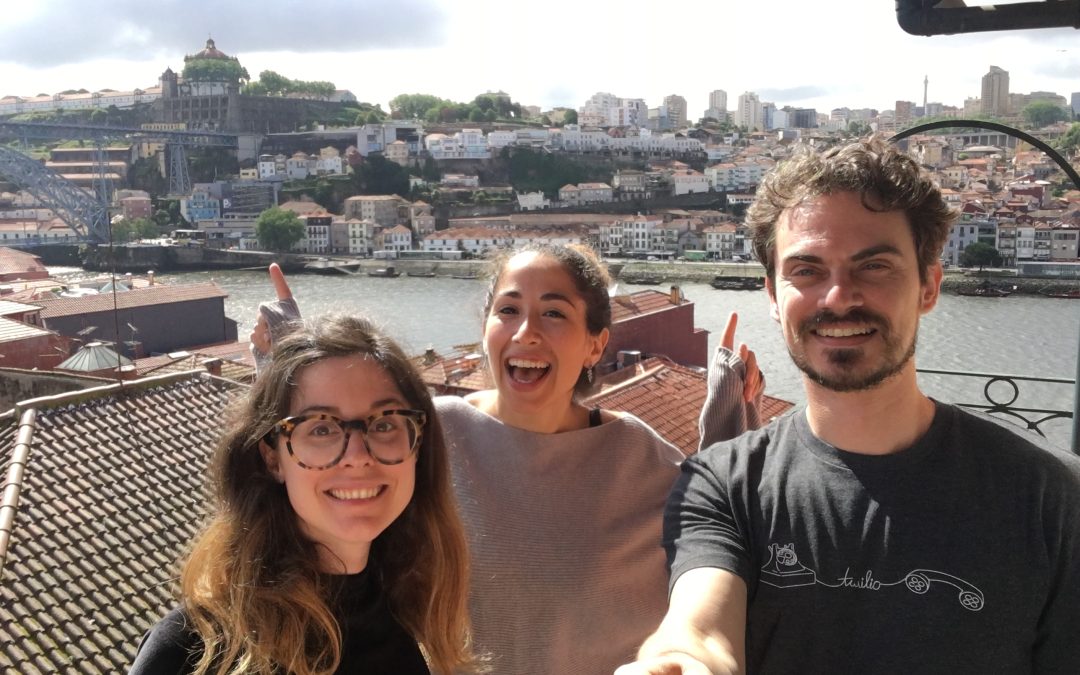Pauline Roussel and Dimitar Inchev have been around the world to visit coworking spaces. As a result, they founded Coworkies, a job board for the flex and coworking industry. They also recently published “Around The World in 250 Coworking Spaces” a unique book project you’ll discover in this interview.
Today we would like to know what Coworking in Portugal felt like for Pauline and Dimitar and how they experienced diversity in the coworking industry.
- How did you come up with travelling the world and visiting workspaces?
We met in a coworking space in Berlin where Pauline was the General Manager, and Dimitar was working for a startup accelerator. Looking at all the opportunities that were born there daily, we started to wonder what the daily life in other coworking spaces around us was looking like.
To figure it out, we started to travel around Berlin (where we are based) at first, meeting coworking spaces targeting different communities, from parents to musicians or makers.
The idea of travelling the world came out of an encounter with a person running a coworking brand in Italy who came to visit our space. When we told him about our Berlin exploration, he invited us to visit his space in Milan and see what and how they were doing coworking. From then on, our curiosity got the best of us, and we never really stopped exploring.
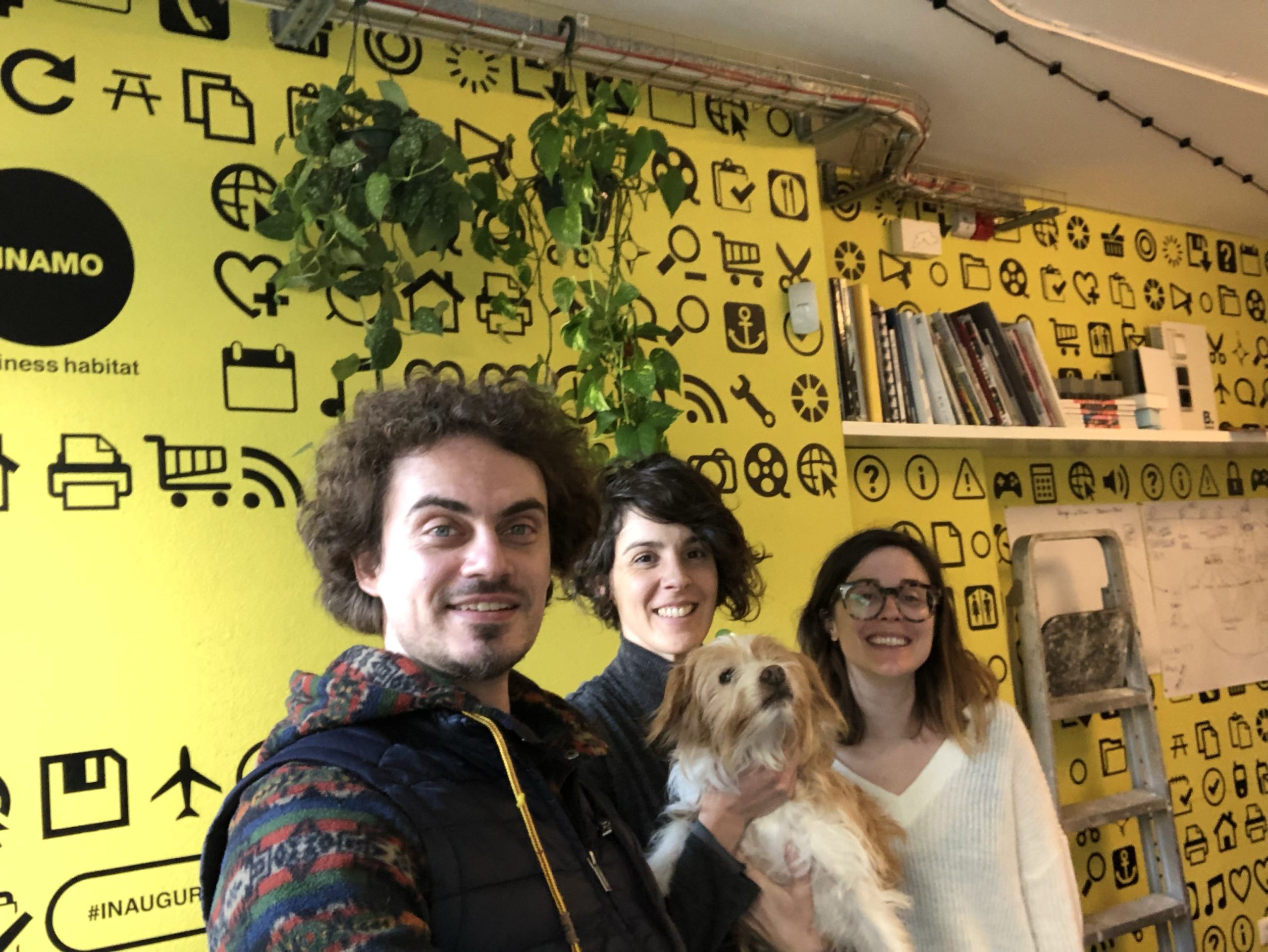
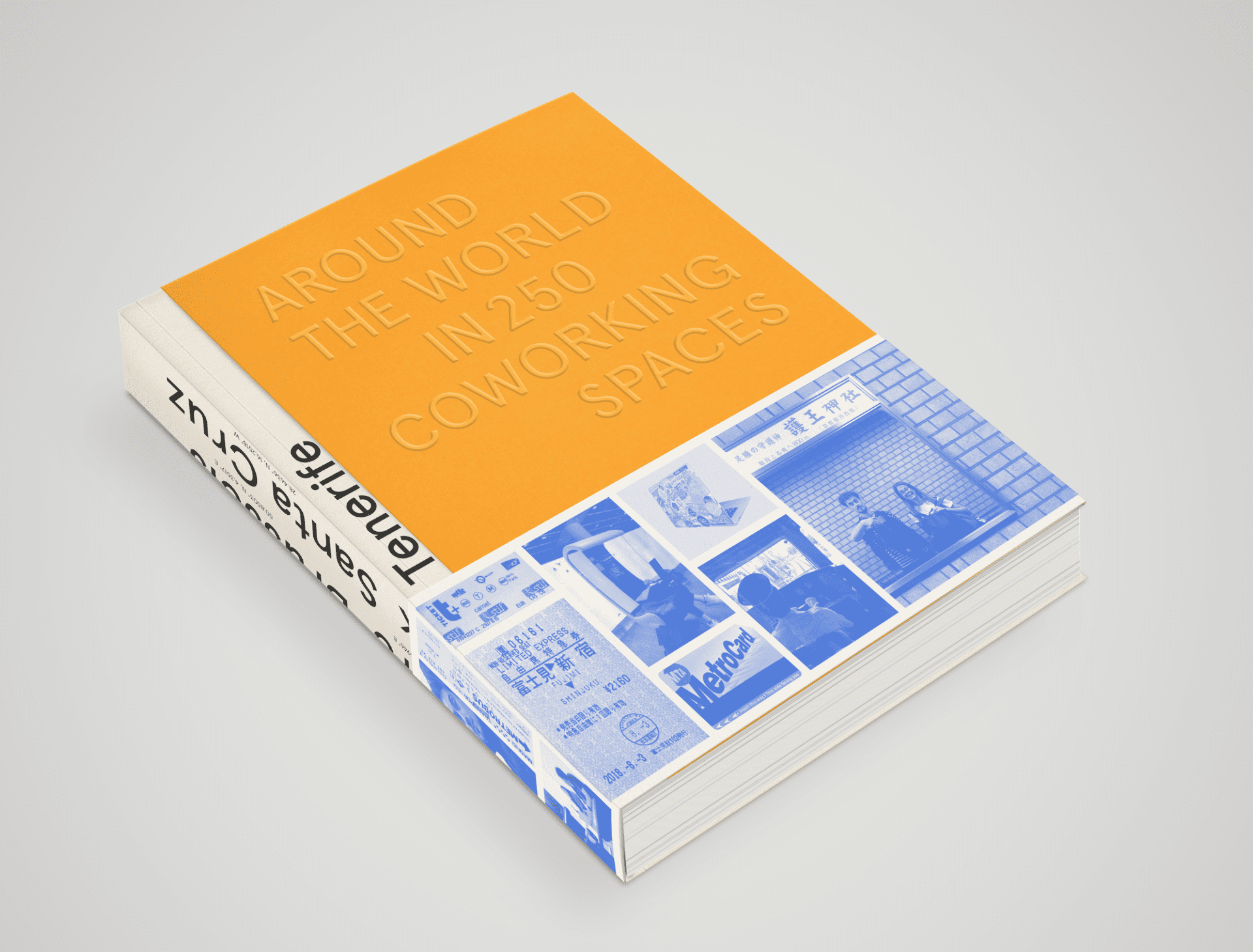
- Was the experience as you expected? If not, what was different?
What we lived while travelling on the road is the outcome of the experience we created around it. It is fair to say that what we got to experience was beyond anything we could have imagined.
We’ve witnessed first-hand the true meaning of passion, dedication, courage, strength and innovation. The energy we’ve received while travelling has also been the fuel that has kept us moving forward.
- 250 Workspaces is a vast amount. How many of them do you remember well and why?
We visited more than 250 coworking spaces. As of today, we had the chance to visit 455 spaces across 50 cities. We remember each person we’ve met and the atmosphere of each space. Every meeting has been a journey of discovery, discussion and learning. Each meeting has changed our understanding of coworking, and we cherish and remember them dearly… but also because we took selfies with everyone 🙂 Thanks to all our encounters, we now say:
“coworking is the same dish everyone cooks differently.”
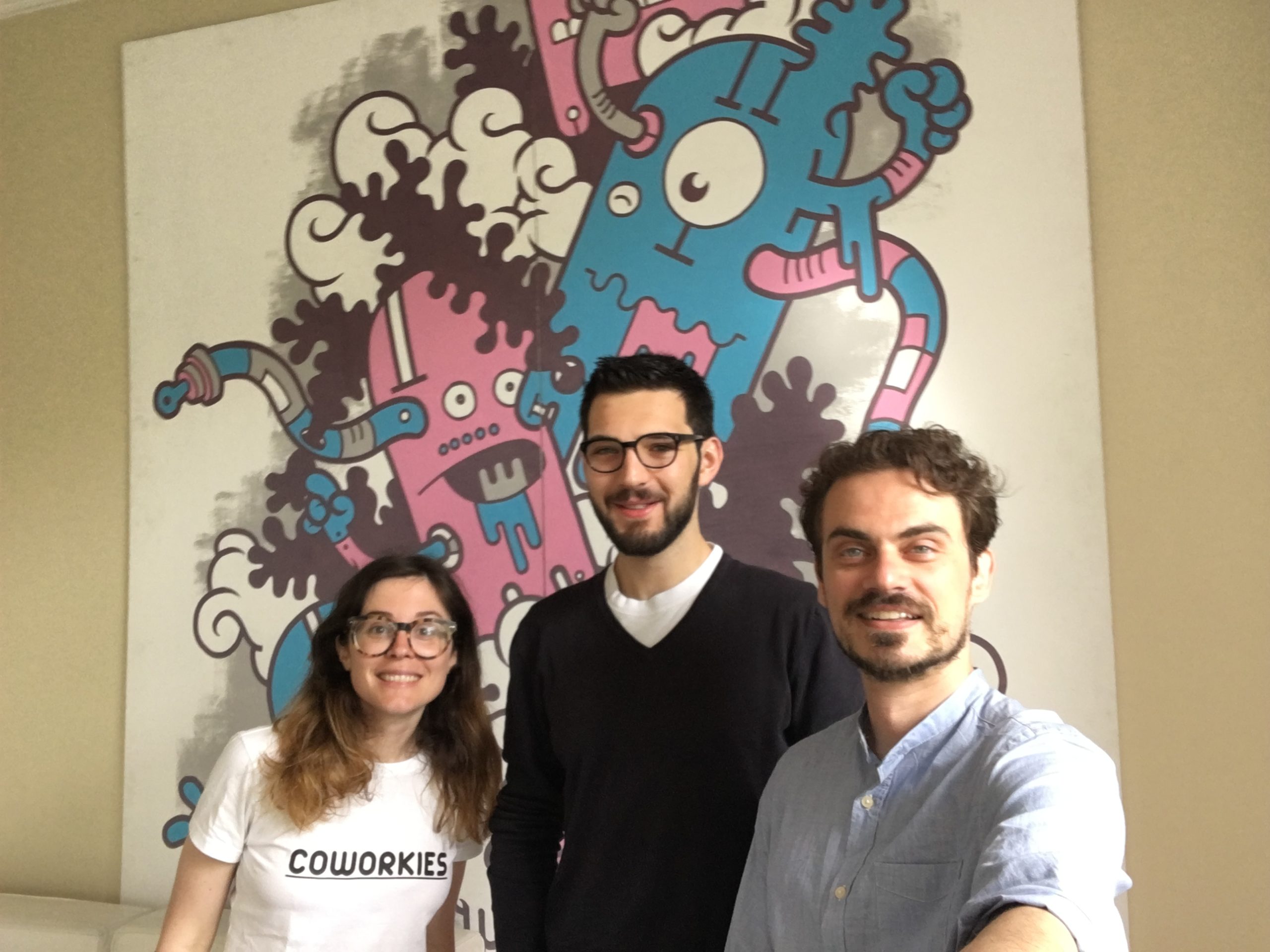
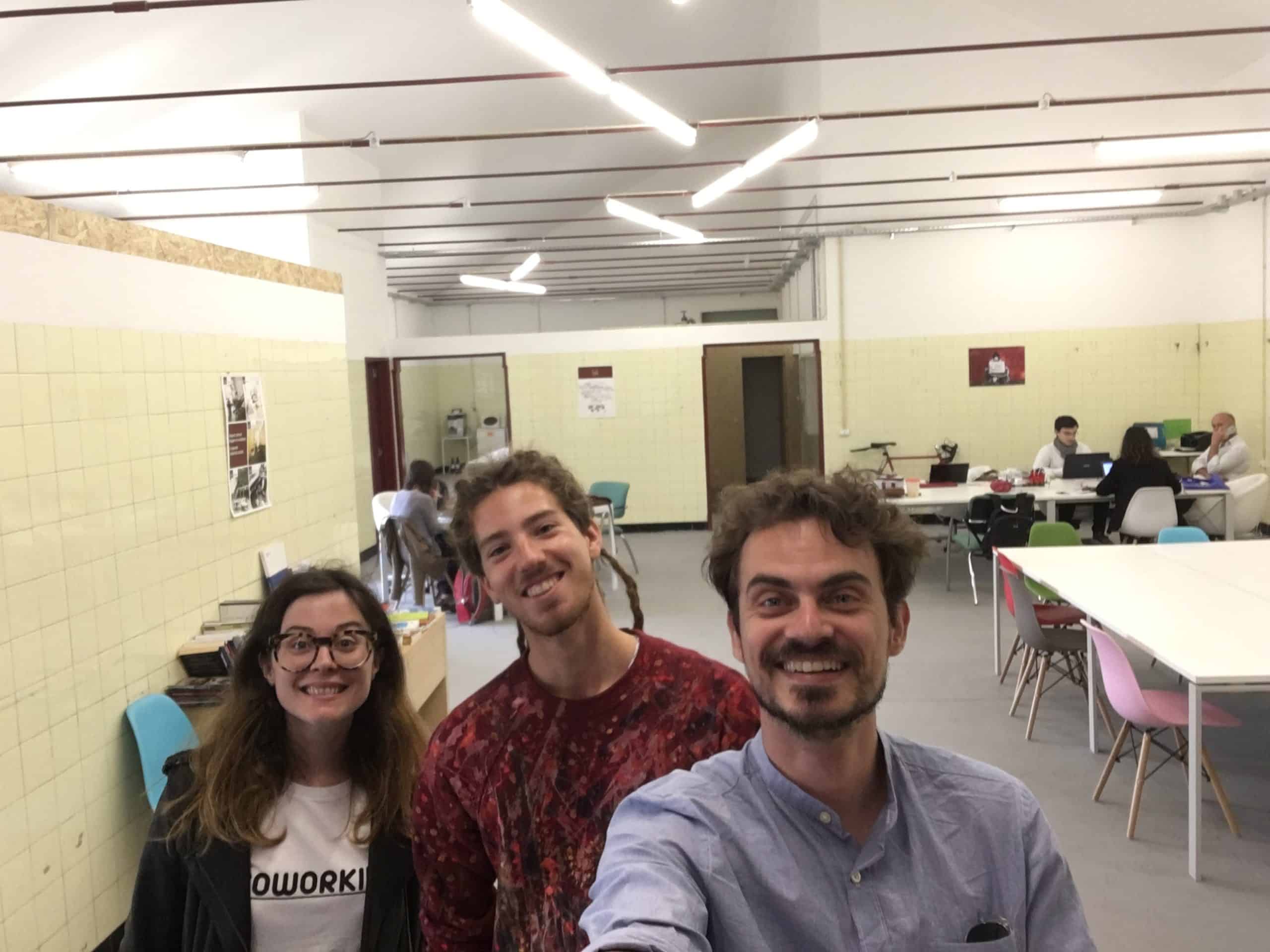
- Did you notice something unique about spaces and communities managed here in Portugal you didn’t see elsewhere?
It’s a good question! Every city and country we visit is unique I have to say, and there are a few reasons for that:
- First, coworking as a movement didn’t start at the same time everywhere, which makes its popularity and understanding different from one city to another or even from one country to another.
- Second, coworking didn’t start everywhere for the same reasons. In some of the cities we visited, coworking spaces opened their doors in response to the economic crisis. In contrast, in other environments, it started as a response to unaffordable office space for SMEs, for instance.
With that in mind, Portugal is a unique country for coworking because it started quite a while ago (2010, if I am not mistaken, Fernando and Ana from Coworklisboa can correct me if they read this ?).
12 years of coworking means enough time to raise awareness about it, as well as enough time for different kinds of concepts to emerge. Actually, on that note, if people reading this interview have our book in their hands, they can check out the different spaces we featured from Portugal to understand what we mean. From Viana do Castelo to Lisbon or Porto, we highlighted different sizes of cities and different concepts that all add value in different ways.
- How did you choose which ones to visit?
We did it in different ways.
Sometimes we asked people we knew which coworking spaces they would recommend us to visit, and other times we would do our own research.
But each time we decided to visit a coworking space, we read about their story, and we looked into the team, the space, and the community so that we could make the best out of every meeting we had.
Every city we visit has a different coworking scene and reasons to exist. In some regions of the world, coworking is still at its infancy stage, so you might have less diversity of concepts, but mainly because the market is in an “educational” phase. And then, in other cities like London, Barcelona, New York or Berlin, coworking is developed, which means you have many different concepts and communities that can benefit from the coworking model.
So anytime we would travel somewhere, what was essential for us was to get an overview of what the coworking scene looked like there and then dive deeper into different coworking stories, from large to small spaces, independent players to international or national brands.
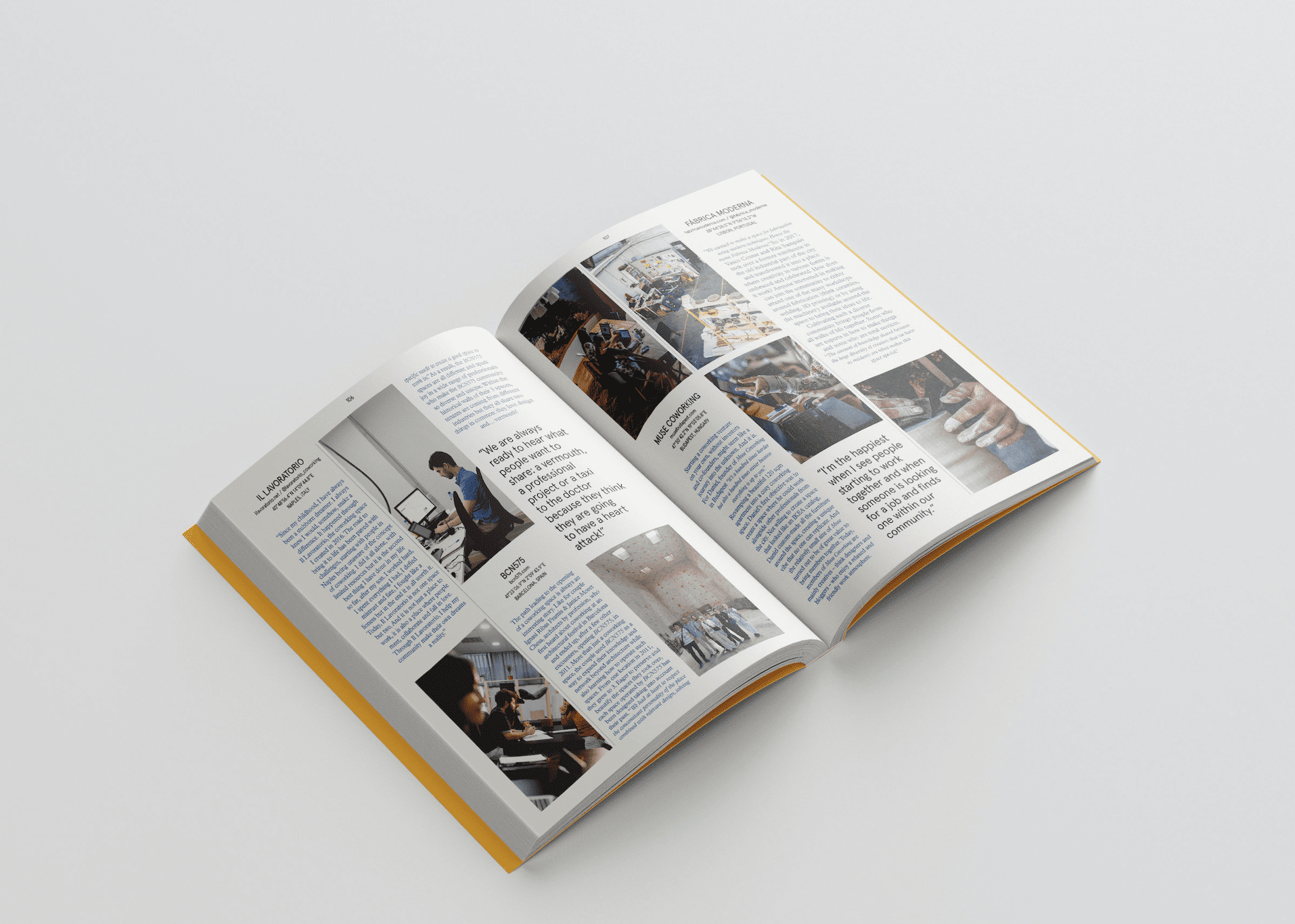
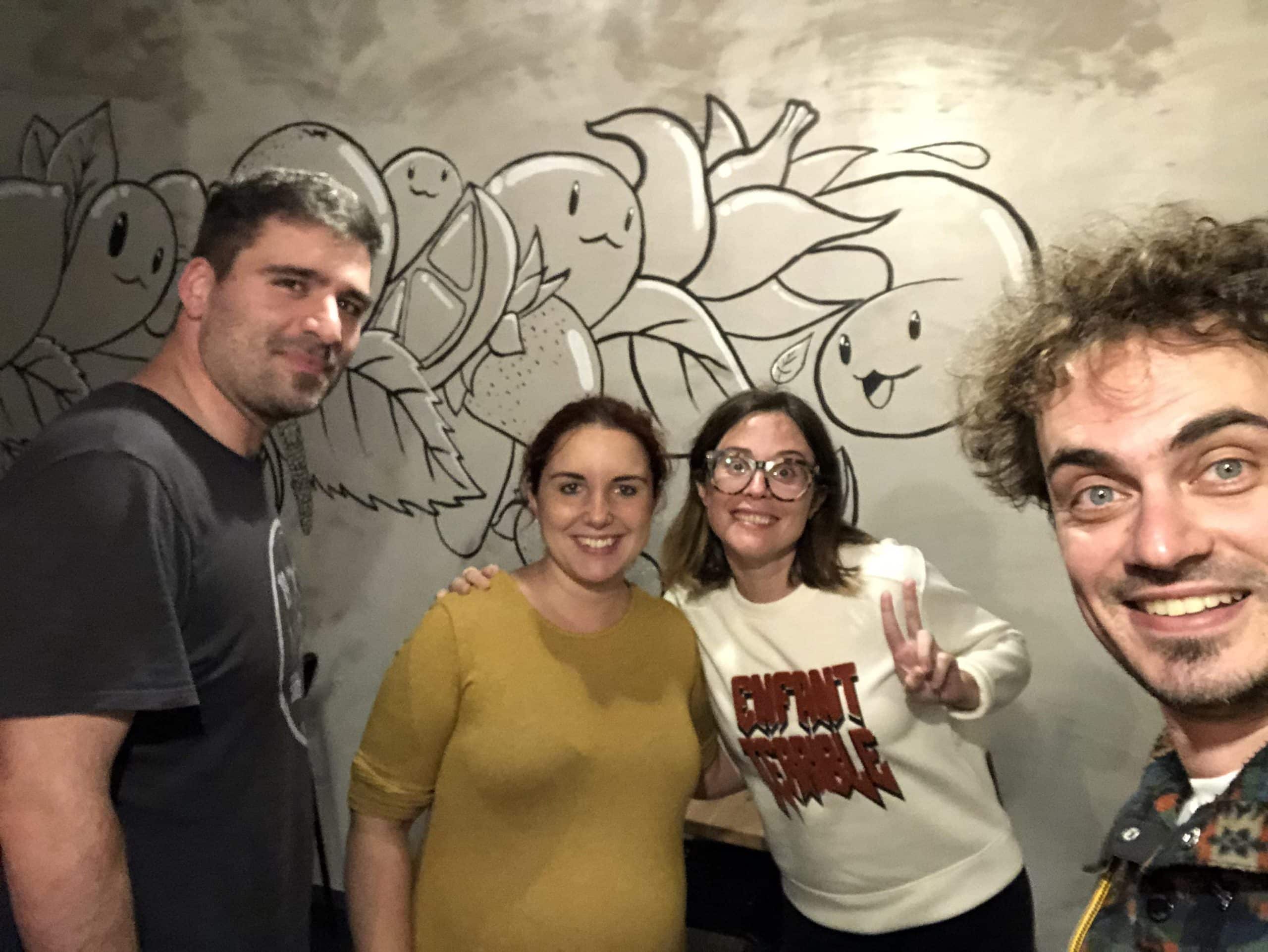
- Did you just drop in or did you announce it – do you think it changed the experience?
Being a part of a coworking space prior to travelling, we knew how busy coworking teams are. We didn’t want to randomly pop in so we always wrote to them prior to going to their spaces to check if they were there, and if they had time to meet.
In that way, it also allowed them to check us out and it made our time together even more valuable. By announcing ourselves prior to going, we “set” the tone of our meeting and why we wanted to meet so they felt more comfortable talking to us and sharing their story because they understood we were not selling anything, we were just genuinely interested in what they were doing.
- I heard you pointing out “community is the key” – in which sense?
We are not the actual “creators” of this claim, it came from one of our partners, SALTO Systems but we really agree with it. Coworking spaces are social spaces, places where people go to work but also experience the workplace differently.
And the way coworking differs from a more traditional workplace is in the experience, which is more human-centric / community-centric. Coworking operators spend a lot of time creating, nurturing and growing unique communities in their spaces and at some point, it becomes key to the story of their spaces. It’s at the centre of everything and it is (most of the time) why they are doing what they are doing. Read more about coworking strategy here.
When you have a community behind you, you feel supported and empowered.
And if you look at the power of communities, COVID-19 was a great example of how important it is for spaces to have a community. Those who had engaged communities could keep thriving during the pandemic. In contrast, for those who were struggling with the community before the pandemic already, it turned out to become a real challenge.
- Talking about the job board you created with Coworkies, do you see the coworking job market dynamic in Portugal?
The coworking job market is quite different from country to country and it is often linked to the maturity of the industry locally as well as the size of the market itself. Portugal is a smaller market when it comes to jobs in coworking spaces, simply because the country is smaller than let’s say France or Spain. There are, logically, fewer operators, hence fewer job opportunities.
That being said, it is pretty dynamic, and the range of job offers we see in coworking spaces in Portugal is quite broad. It’s not just about community manager positions, there are a lot of operational roles, marketing roles, as well as admin roles available.
- Just out of interest, what are the aspects that the “Coworking in Portugal” movement or Lisbon workspaces could improve?
In Portugal, we had the chance to visit a few cities, mainly in the north, between Viana do Castelo and Lisbon and we have always been very impressed by the overall quality of spaces and the diversity there is when it comes to coworking and collaborative workspaces.
We’ve tried our best to highlight this diversity in our book by promoting the different coworking communities we had the chance to visit during our time coworking in Portugal.
It’s hard for us to share “improvements” simply because we haven’t been to Portugal for a while, and things have changed quite a bit since the last time we were there. Instead of improvements, we do have open questions for Portuguese operators reading this interview:
- How have you seen your space change in the last two years?
- What’s your current biggest challenge?
- What do you feel is currently missing for you to grow?
- If you could greet one particular coworking space you visited in Portugal – who would it be and why?
Interesting question. People who have met us know that we do not have favourites, and we avoid this way of thinking about coworking. We see each community as unique and targeted in serving specific professionals that need their service. With that said to Coworking in Portugal:
